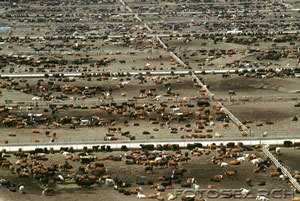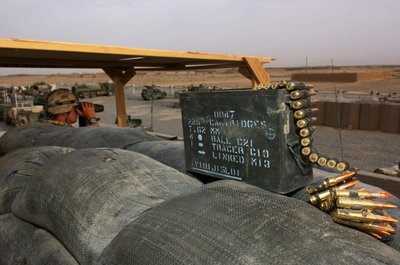I'm Feeling Sick All The Time - Here's Why

Photo link
Zoonotic is defined as a disease which can be passed from animal to human. All humans at any given time have a variety of these pathogens and defenses against them(antigens) with-in our stomachs, as a part of our immune system; both can cause deteriorating health and death.
Over time the whole of human civilization individually build defences to these pathogens; but at a price, sometimes taking the form of a mass death epidemic.
The rate of increase in the incidence and variety of zoonotic pathogens in our food supply at the present time is alarming the experts.
The Centers for Disease Control and Prevention concludes with respect to the new abundance of these zoonotic pathogens, "...public health concerns must now include the safety of what food animals themselves eat and drink." This suggests a return to an old standard of how we husband livestock.
The standard inspection regime right now is, if the animal appeares healthy at the slaughter house door - if it can stand steady, has a normal temperature, is not showing outward signs of ill health - it is considered fit to eat by humans. But with the help of antivirals, antibiotics, and Antimicrobials, Livestock are adapting to pathogens in unsanitary conditions; so they look healthy while the diseases they harbour are deadly.
So the old way of ensuring public health, including these casual 'check-up' style inspections and line inspections to ensure no fecal matter comes in contact with slaughtered meat - is now insufficient. Even Kosur or Halal type slaughter regimes will not protect us from these new emerging pathogens that are developing in the barnyard.
Livestock are adapting to new pathogens at a rate faster than humans are adapting to new pathogens in their diet. This is due the inhuman conditions in which we raise livestock, in cattle barns and feed lots; to global food distribution, which introduces new pathogens to new populations of animals and humans; and to underfunded health networks, which undermine our ability to cope with crisis.
As we've seen this summer and fall, the effluent running off these production sites into our waterways are funneling new pathogens into produce growers water supplies and then into the produce food chain as well.
Animal husbandry is a term you don't hear alot today - it's a term from the era of the family farm. Farmers who run large scale family farms unexpectedly prefer the phrase 'livestock production' to descibe what they do. For corporate farms managed by boards of directors and run by waged workers the term 'livestock production line' is entirely appropriate and where the term originates. For both kinds of production entities the new phrase is integral to a mindset that produces profit. The scale of new farming demands a new mindset. Yet the choice of the term 'animal husbandry' says volumes about the way we treat our livestock.
The continuing industrialization of our food production and the global distribution model is a critical new health threat. The mass production model must include animal Care. The result of ignoring so called 'animal rights' could be an epidemic spread through the global food supply chain.
If we permit the animals we eat to live their lives in feed lots, regularly up to their bellies in their own excrement, we get what we get; we reap what we sow. Poultry for example get no exercise, living the vast majority of their lives in cages - only big enough for the full grown bird. In the case of pigs they also live their lives immobile, inhaling high levels of ammonia that eminate from their stool.
As a result of this unhealthy environment the animals we eat are adapting to pathogens faster than we, in our healthy evirons are. Add to this the fact that the global trade in livestock is also a global trade in pathogens, and one can say without qualification: this state of affairs will eventually lead to a mass death epidemic.
What we're seeing in industrial food production amounts to abuse. So the moral imperative groups like PETA are acting upon in the spiritual dimention can now be seen in a larger sence; choosing not to eat meat is not essencially a moral choice, but a health safety issue.
This clairity demands an expansion of the moral imperative; not eating meat is now a Hedonistic Reaction - choosing not to eat meat that is produced in this industrial manner is a Moral Imperative.
These new findings by The Centers for Disease Control and Prevention and others are the canary in the coal mine - a warning; our food production/distribution model must change.
LINKS TO THIS POST
THE RAMS HORN - a monthly journal of food systems analysis.
CENTERS FOR DISEASE CONTROL AND PREVENTION - Emerging Infectious Diseases journal
CANADIAN FOOD INSPECTION AGENCY - Food Recalls and Allergy Alerts
THE LANCET.COM - "Europe set to tackle zoonotic infections"
MED-VET-NET - a vitual journal working for the prevention and control of zoonoses...






 Keep on Blogging!
Keep on Blogging!
